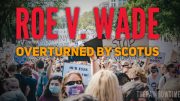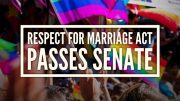“The proof that one truly believes is in action.” ― Bayard Rustin
BOSTON, Mass.—The Hispanic Black Gay Coalition and the Lawyers’ Committee for Civil Rights and Economic Justice dream of a society where every person—regardless of race, color, creed, age, national origin, immigration status, sex, gender identity, sexual orientation, or disability—can live and love without fear of violence or discrimination.
Today, in a landmark ruling, the U.S. Supreme Court held that the U.S. Constitution protects same-sex couples’ freedom to marry across the country, and that all state marriage bans are invalid. This historic ruling creates a clear national solution for marriage.
Just 46 years ago—on June 28, 1969—the LGBTQ community fought back against a police raid at the Stonewall Inn, a queer bar on Christopher Street in New York City’s Greenwich Village. From Stonewall, the LGBTQ community inherited an inspiring legacy of courage and activism. This is the spirit that empowered HIV activists during the AIDS crisis in the 1980s, and that continues to inspire new generations of leaders fighting for equality today. [pullquote]Along this journey, courts across the country have re-affirmed that sexual orientation and the love of same-sex couples are protected by the U.S. Constitution. However, homophobia, transphobia, and HIV phobia are still potent forces today. LGBTQ and HIV-affected individuals—particularly people of color, immigrants, and low-income individuals—continue to experience many forms of discrimination, violence, and social exclusion.[/pullquote]
The LGBTQ community has come a long way since Stonewall, and the drive for relationship recognition and marriage rights has progressed at a stunning pace. Just twelve years ago, in Goodridge v. Department of Public Health, the Massachusetts Supreme Court ruled that same-sex couples could not be excluded from civil marriage rights in that state. Over the last decade, the seeds planted in Goodridge have flourished.
Marriage equality gives same-sex couples access to more than one thousand rights and benefits under federal and state laws. These victories are the fruit of hard-fought civil rights struggles for recognition, respect, and justice, and we celebrate this impressive progress.
Along this journey, courts across the country have re-affirmed that sexual orientation and the love of same-sex couples are protected by the U.S. Constitution. However, homophobia, transphobia, and HIV phobia are still potent forces today. LGBTQ and HIV-affected individuals—particularly people of color, immigrants, and low-income individuals—continue to experience many forms of discrimination, violence, and social exclusion.
As a civil rights community, we must tackle the growing distance between “legal equality” and “lived equality” by ensuring that legal and policy protections improve the daily life and experience of marginalized and vulnerable individuals—particularly people of color, people living with HIV, immigrants, undocumented people, and low-income people.
The LGBTQ community continues to face an alarming rate of deadly violence, including the murder of 11 transgender individuals so far this year. According to a recent report from the National Coalition of Anti-Violence Programs, 80% of anti-LGBTQ murder victims are people of color. This pattern of violence confirms the urgency of Kimberly Williams Crenshaw’s warning: “If we aren’t intersectional, some of us, the most vulnerable, are going to fall through the cracks.”
Flawed stop-and-frisk policies, police confiscation of condoms as evidence of prostitution, and incidents of police brutality that result in countless deaths—including those of Michael Brown in Ferguson, Missouri, and Eric Garner in New York City—are all powerful reminders that over-criminalization and mass incarceration are daily realities for far too many people based on their race, class, sex, sexual orientation, gender identity, immigration status, and health status. Black men, people of color, immigrants, transgender women of color, and those living with HIV continue to be perceived as inherently suspicious, dangerous, and threatening. As a society, we continue to criminalize people who already face multiple forms of discrimination and oppression, at a substantial cost to individuals, families, communities, and the country as a whole.
The military’s former “Don’t Ask, Don’t Tell” policy has been dismantled, but transgender people and those living with HIV are still barred from serving their country. [pullquote]We invite the civil rights movement to think about our brothers and sisters who experience violence, bullying, workplace discrimination, homelessness, barriers to healthcare, criminal prosecution, deportation, and other forms of exclusion. We invite the civil rights movement to take action on behalf of those in our communities who are still being left behind. For all of us, the civil rights struggle continues.[/pullquote]
The HIV epidemic that devastated our communities is far from over. Truly effective treatments have completely changed what it means to be living with HIV, but thousands do not have access to healthcare. Testing positive is hardly a death sentence, but it can be a prison sentence in many states that still have laws making HIV positive status a potential crime.
Only a few states have laws that protect against workplace discrimination for both sexual orientation and gender identity. In many states, you can be fired from work because you married your same-sex partner. At the federal level, the Employment Non-Discrimination Act (ENDA) has been introduced in Congress repeatedly since 1994, but has yet to pass.
As we celebrate marriage, we must also think critically beyond marriage. As President Obama aptly noted recently, “the arc of the moral universe may bend towards justice, but it doesn’t bend on its own.” We invite the civil rights movement to think about our brothers and sisters who experience violence, bullying, workplace discrimination, homelessness, barriers to healthcare, criminal prosecution, deportation, and other forms of exclusion. We invite the civil rights movement to take action on behalf of those in our communities who are still being left behind. For all of us, the civil rights struggle continues.
[From a News Release]








